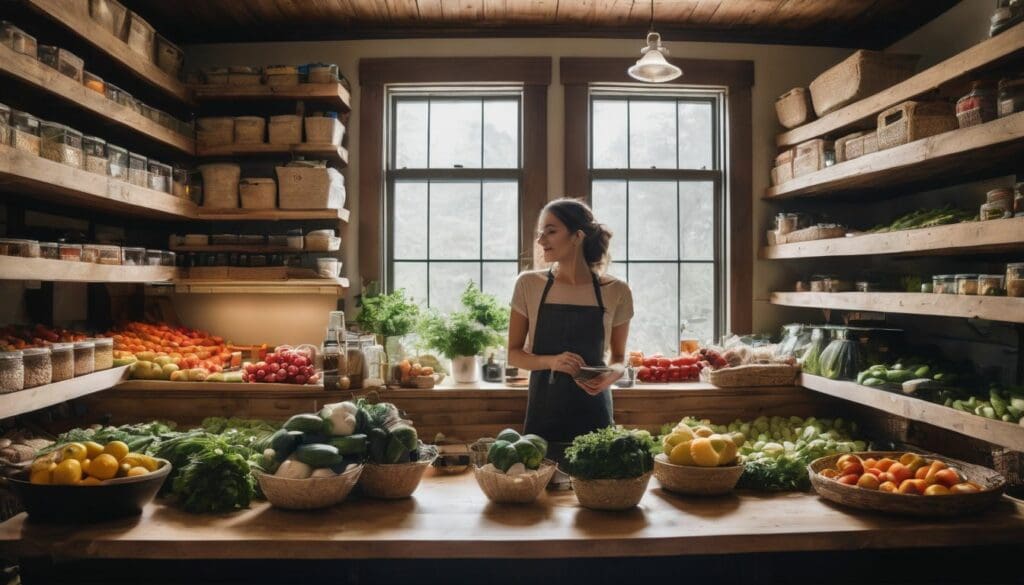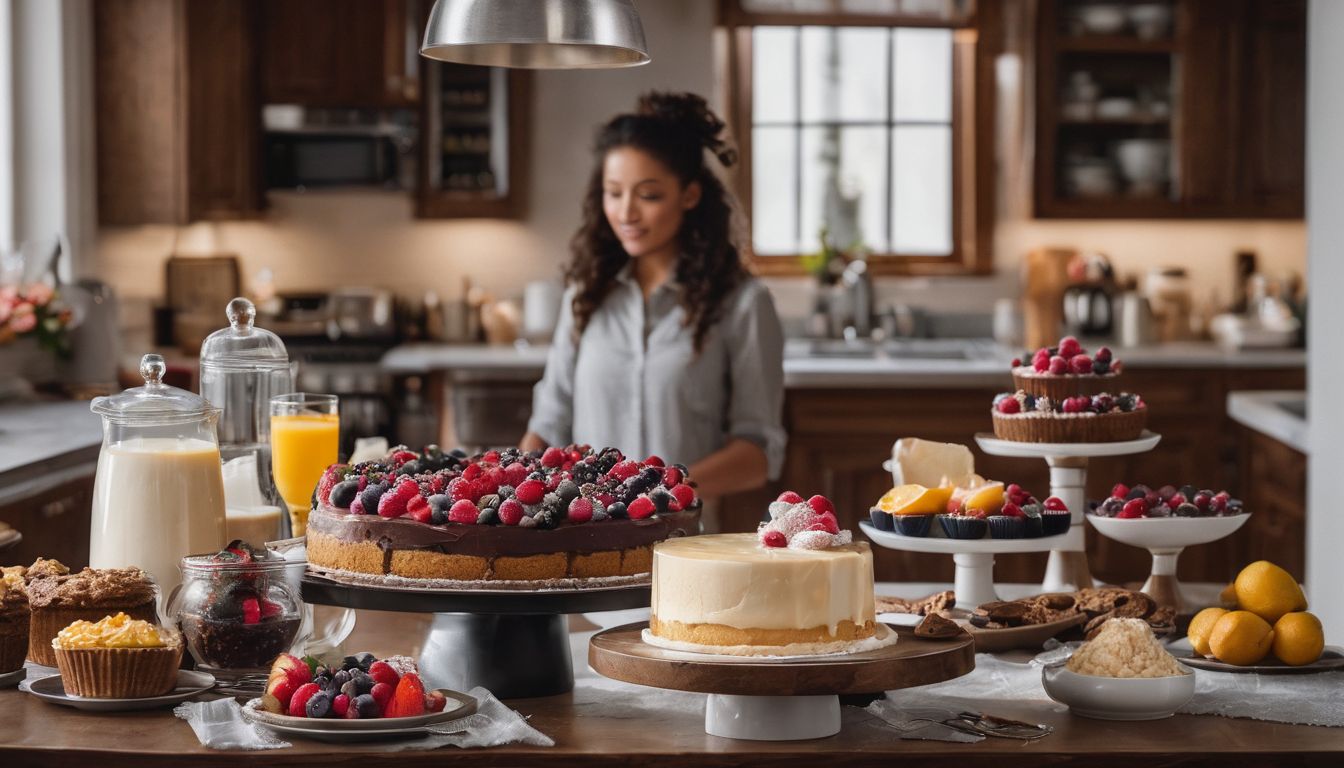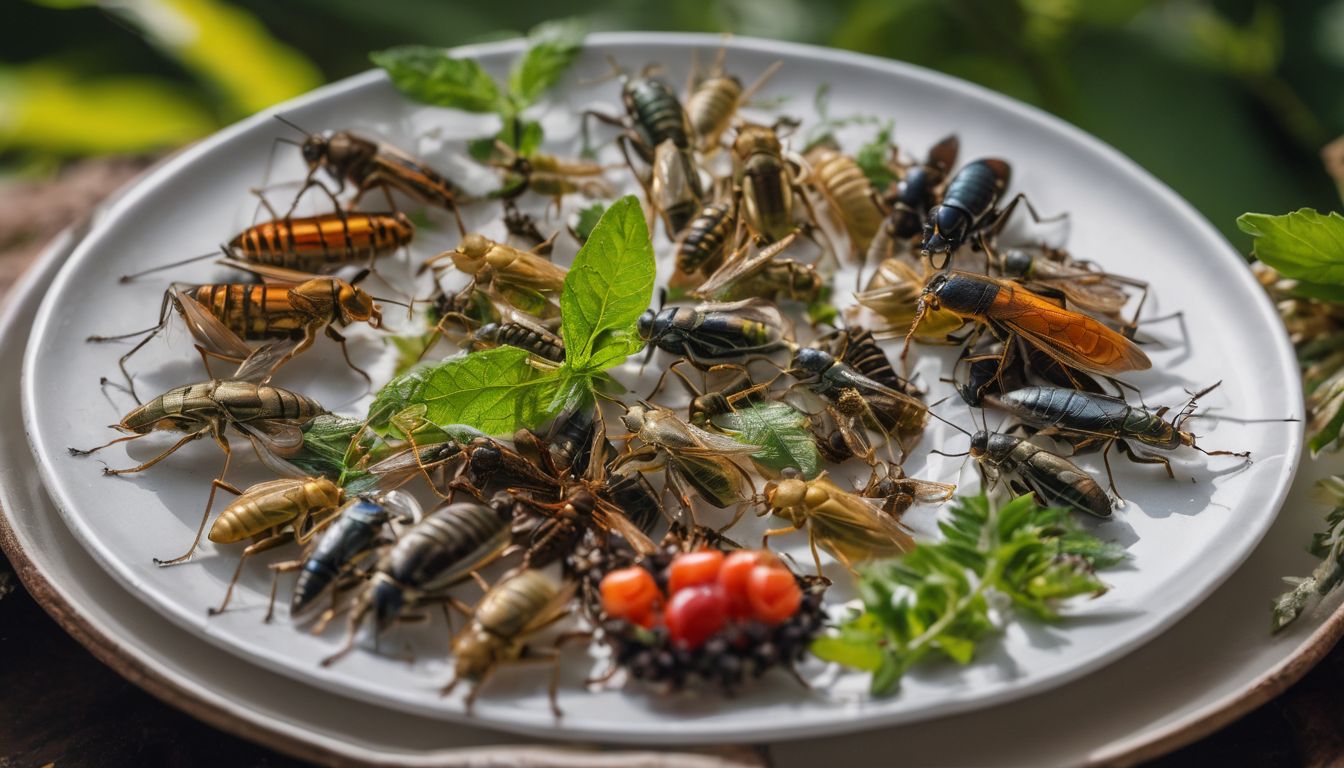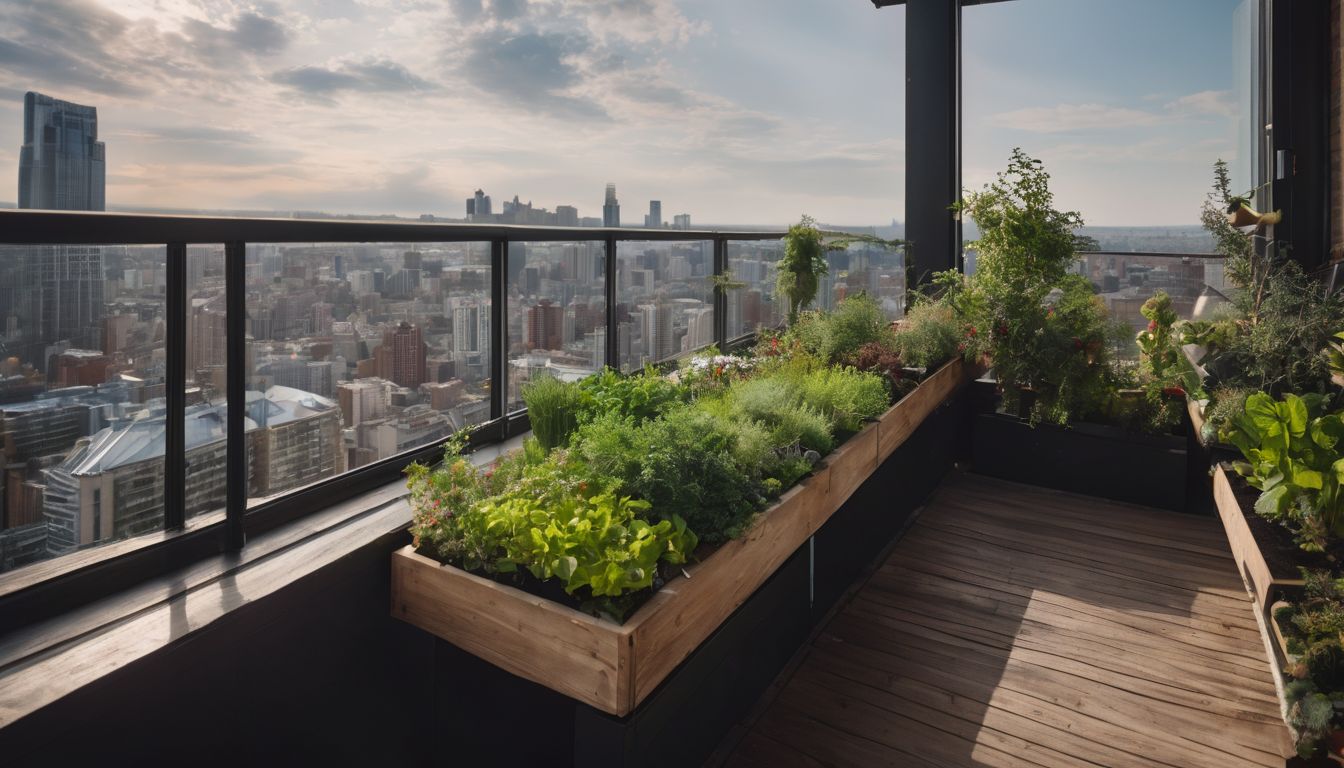Many of us worry about the food we waste. Did you know that poor storage is one of the top reasons for throwing away perfectly good food? Our guide will show you simple, earth-friendly ways to keep your groceries fresh and your conscience clear.
Let’s make a change together!
The Environmental Impact of Food Storage
Food storage contributes to food waste and climate change, highlighting the need for sustainable solutions.
The need for sustainable solutions
Choosing sustainable food storage solutions is crucial for reducing environmental impact. By making eco-friendly choices, such as using reusable containers and beeswax wraps, individuals can cut down on single-use plastics and promote a greener lifestyle.
Sustainable kitchen storage options like glass containers, silicone bags, and biodegradable food containers not only help in preserving the environment but also contribute to healthier living by minimising exposure to harmful chemicals found in some plastic products.
Embracing these environmentally responsible food storage alternatives enables individuals to lead by example and play an active role in promoting conservation efforts within their homes.
Sustainable Food Storage Containers
From glass containers to stainless steel and silicone bags, there are plenty of eco-friendly options for storing food in your home. Beeswax wraps are another sustainable alternative that helps reduce plastic waste.
Glass containers
Glass containers are durable and reusable, making them an ideal eco-friendly option for food storage. Glass is nonporous and won’t absorb food odours, making it perfect for keeping food fresh. Glass containers come in various shapes and sizes, offering versatility for storing a wide range of food items securely.
Stainless steel containers
When considering eco-friendly food storage containers, stainless steel is a durable and sustainable option. Stainless steel containers are reusable, helping to reduce single-use plastic waste. They are also non-toxic and do not leach harmful chemicals into food items.
- Long-lasting: Stainless steel containers are highly durable and can withstand wear and tear, making them a long-term investment for your sustainable kitchen storage needs.
- Versatile: These containers are suitable for storing both dry goods and liquids, providing a versatile solution for eco-conscious individuals looking to reduce their environmental impact.
- Easy to clean: Stainless steel containers are dishwasher safe, making them convenient for busy households and reducing the need for disposable storage options.
- Airtight: Many stainless steel containers come with secure lids that create an airtight seal, helping to preserve the freshness of food items without the need for plastic wrap or other disposable alternatives.
- Recyclable: At the end of their lifespan, stainless steel containers can be fully recycled, contributing to a circular economy and minimising waste sent to landfill.
Biodegradable food containers
Biodegradable food containers are made from plant-based materials that break down naturally, reducing the amount of waste in landfills and oceans. They are a sustainable alternative to traditional plastic containers and help to minimise the environmental impact of food storage.
- Cornstarch containers: These containers are made from cornstarch and other natural materials, making them compostable and biodegradable.
- Bagasse containers: Made from sugarcane fibres, bagasse containers are sturdy, renewable, and decompose easily in composting facilities.
- Palm leaf containers: These eco-friendly containers are made from fallen palm leaves, making them 100% biodegradable and perfect for storing dry foods.
- Mushroom packaging: This innovative packaging is made from mycelium (the root system of mushrooms) and is fully compostable, providing a sustainable option for food storage.
- Bioplastic containers: These containers are made from plants like corn or sugarcane, breaking down into organic materials when disposed of properly.
The Importance of Upcycling and Recycling
By upcycling and recycling food containers, we can reduce waste and promote sustainability in our homes. This involves creatively repurposing old containers or finding new ways to use them, contributing to a more environmentally responsible lifestyle.
Ideas for upcycling food containers
- Transform glass jars into herb planters by adding drainage holes and potting soil, creating a sustainable and decorative addition to your kitchen.
- Repurpose tin cans as pencil holders or small indoor plant pots, giving them a new lease of life and reducing waste in the process.
- Use plastic yogurt containers to organize small items like buttons, office supplies, or sewing notions, reducing clutter and promoting reusability.
- Turn cardboard egg cartons into seed starters for your garden by filling each compartment with soil and planting seeds, allowing for easy transplanting once they sprout.
- Repurpose coffee cans as stylish storage containers for kitchen utensils or art supplies, adding a touch of eco-friendly decor to your home.
Conclusion
Incorporate sustainable food storage solutions into your daily routine, reducing environmental impact. Choose eco-friendly containers and consider upcycling or recycling options for a greener lifestyle.
Take small steps to make a big difference in preserving the planet for future generations.





